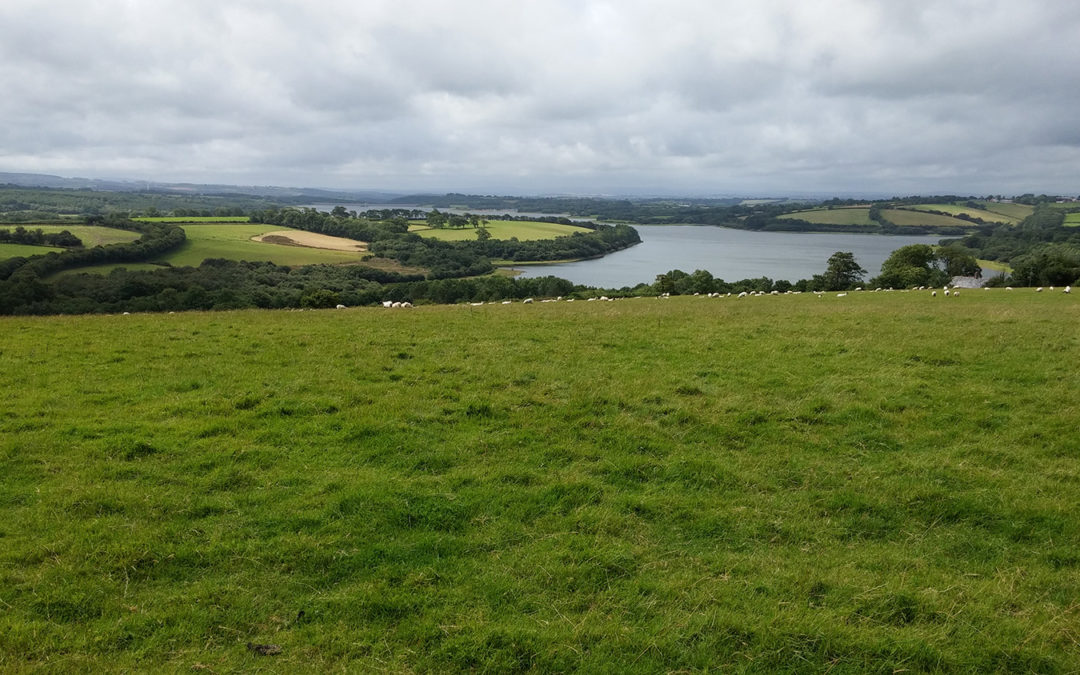NATURE will receive a helping hand in the River Lyd catchment in Devon after an online auction attracted up £125,000 of proposals from farmers.
We initiated a four-week opportunity for farmers to bid for funds in a collaborative project with the Environment Agency (EA) and Sylva Foundation, using the EA’s auction platform NatureBid, to implement positive changes on their land.
Hazel Kendall, our head of land management, said: “This opportunity, which will protect water quality via interventions such as watercourse fencing, field and river buffer strips, woodland planting or soil management, has been very popular, with strong local support resulting in one and a half times the value of bids compared to currently available funds.
“Our Farm Advisor team is now working with the 15 farmers and landowners whose bids were successful to prioritise activity, as well as seek the potential for more funding as enquiries continue to be received.”
The auction is part of the Channel Payments for Ecosystem Services (CPES) Interreg project, which we are delivering locally as one of 14 partners across the UK and France, to evaluate alternative approaches, and the potential for commercial markets, to support environmental investment.
Part of the scheme focuses on broad-leaved woodland due to the positives that strategic woodland planting can deliver in catchment towards increasing infiltration and reducing surface run-off, acting as a natural buffer to help filter out or trap contaminants, boost biodiversity and sequester Carbon.
From discussions in the Tamar Water Stewardship Business Board (a collaboration of private sector interests) and from evaluation of existing data and supply chains, we were able to demonstrate the value of local strategic woodland planting to Lifton-based food processor Ambrosia (owned by Premier Foods), alongside all the wider benefits this can bring.
This led to Premier Foods, which relies on water supply and quality and has been offsetting its operational Carbon footprint via donations to the Woodland Trust, to fund the purchase of 16,000 trees to be planted via the NatureBid process in the Lyd catchment this season.
The EA has been monitoring the scheme through Defra’s Environmental Land Management Test & Trial project, which also contributed towards the grant funding pot.
Neil Davies, director of Future Funding at the EA, said: “Nature and climate emergencies mean we need to be far more innovative in how we address environmental challenges.
“Using nature itself to do this has got to be the way forward; these trials are a crucial step along the way in achieving this.”
Growing interest in sustainability, environmental drivers and a Climate Emergency has meant the ambition and objectives of the CPES project has created an opportunity for the private sector to invest in local actions with tangible benefits.
Hazel concluded: “We hope that what started out two years ago as a water quality protection project can potentially grow into a broader legacy due to interest in Carbon or other markets, as one of the actions is to offer Soil Carbon sampling to farmers which may act as further incentive to review and adapt land use in future to support more sustainable agriculture.”
For more info or to discuss CPES potential please contact Hazel Kendall via [email protected] or 01579 372140.
ENDS
Editor’s Notes:
Westcountry Rivers Trust is a charity working to restore and protect the rivers, lakes, estuaries and coastal areas of the region for the benefit of people, wildlife and the local economy.
Channel Payments for Ecosystem Services (CPES) is a cooperation project managed within the Interreg VA France (Channel) England programme. It has a €4 million budget, co-financed by the European Regional Development Fund (€2.8 million), and runs for a 45-month period (2017-2020). Fourteen partners are working towards a common goal: to improve water quality by implementing sustainable payments for ecosystem services (PES) schemes in six pilot catchments in Southern England and Northern France.
The Interreg France (Channel) England Programme is a European cross-border cooperation programme which aims at funding high quality cooperation projects in the Channel border region between France and England, in line with the Europe 2020 strategy. These projects aim to find common solutions to common problems which exist in multiple countries.
In this instance, the CPES project is being applied to two catchment case study areas by Westcountry Rivers Trust (WRT), the Lyd and the Gara.
The situation on the Gara, which drains into Slapton Ley on the south coast is slightly different – in terms of soils, predominant land use sectors (dairy & arable) and potentially interested supply chains or stakeholders.
WRT has no plans to operate the NatureBid platform on the Gara, instead contrasting this with more traditional engagement through their Farm Advisors and are seeking to develop funding support for similar interventions through the CPES Fund, which any individual or organisation/company can donate to: https://wrt.org.uk/project/the-cpes-fund/.
The Tamar Water Stewardship Business Board has been working with WRT and Business in the Community to identify and encourage best practice among their supply chains from farmers to retailers towards greater water protection and wider environmental benefits. More info at http://www.wrap.org.uk/content/working-together-protect-critical-water-resources or https://wrt.org.uk/project/cpes/.
The Sylva Foundation is a charity aiming to help Britain’s trees and woodlands thrive for people and for nature.
The Environment Agency works to create better places for people and wildlife and support sustainable development. It is an executive non-departmental public body, sponsored by the Department for Environment, Food & Rural Affairs.
Defra’s new Environmental Land Management scheme, the Government’s future Agri Environment system to support and fund environmental activity is currently in development – a series of Tests & Trials have been commissioned to gather experience and understanding which could inform what this new system may incorporate. Through working with the EA on this project, the trialling and development of the web platform has been one such contributor and feedback from farmers will be part of this.

